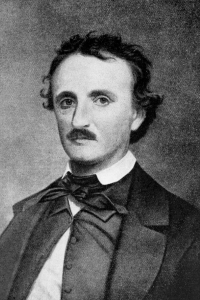Never Bet the Devil Your Head

"Con tal que las costumbres de un autor," says Don Thomas de las Torres, in the preface to his "Amatory Poems" "sean puras y castas, importo muy poco que no sean igualmente severas sus obras"—meaning, in plain English, that, provided the morals of an author are pure personally, it signifies nothing what are the morals of his books. We presume that Don Thomas is now in Purgatory for the assertion. It would be a clever thing, too, in the way of poetical justice, to keep him there until his "Amatory Poems" get out of print, or are laid definitely upon the shelf through lack of readers. Every fiction should have a moral; and, what is more to the purpose, the critics have discovered that every fiction has. Philip Melanchthon, some time ago, wrote a commentary upon the "Batrachomyomachia," and proved that the poet's object was to excite a distaste for sedition. Pierre la Seine, going a step farther, shows that the intention was to recommend to young men temperance in eating and drinking. Just so, too, Jacobus Hugo has satisfied himself that, by Euenis, Homer meant to insinuate John Calvin; by Antinous, Martin Luther; by the Lotophagi, Protestants in general; and, by the Harpies, the Dutch. Our more modern Scholiasts are equally acute. These fellows demonstrate a hidden meaning in "The Antediluvians," a parable in Powhatan," new views in "Cock Robin," and transcendentalism in "Hop O' My Thumb." In short, it has been shown that no man can sit down to write without a very profound design. Thus to authors in general much trouble is spared. A novelist, for example, need have no care of his moral. It is there—that is to say, it is somewhere— and the moral and the critics can take care of themselves. When the proper time arrives, all that the gentleman intended, and all that he did not intend, will be brought to light, in the "Dial," or the "Down-Easter," together with all that he ought to have intended, and the rest that he clearly meant to intend:—so that it will all come very straight in the end.
There is no just ground, therefore, for the charge brought against me by certain ignoramuses—that I have never written a moral tale, or, in more precise words, a tale with a moral. They are not the critics predestined to bring me out, and develop my morals:—that is the secret.
Edgar Allan Poe - Эдгар Аллан По - إدغار آلان بو
 English
English العربية
العربية  Español
Español  Deutsch
Deutsch  Français
Français  Русский
Русский  Italiano
Italiano 






